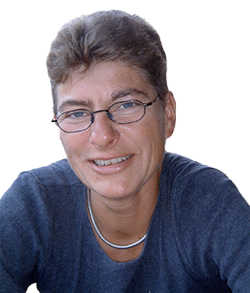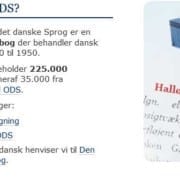Dialog med MyHeritage
Farvel MyHeritage
Indholdsfortegnelse
Dialog med MyHeritage
Efter grundige overvejelser har jeg opsagt abonnementet på MyHeritage.
- Det er for dyrt i forhold til, hvad jeg får ud af det.
- Herudover vil mine data aldrig nogensinde havne på deres side, og det er sikkert den del, der er medvirkende til de skyhøje priser. Jeg tror dog ikke, det er en underskudsforretning …
- De gange, jeg har fundet noget brugbart på siden, kan tælles på to hænder.
- Jeg vil savne folketællingen for 1940, men det er der ikke noget at gøre ved.
Dialogen:
Herunder bringer jeg min dialog med firmaet. Man får faktisk svar fra dem, og det er vældig fint. Vi har skrevet til hinanden i en ordentlig tone, som man selvfølgelig bør, uagtet man er uenige, men da vi kom til emnet Datakvalitet i slægtsforskning, orkede de ikke at “tale” mere med mig. Og det er vel også forståeligt nok, eftersom de ikke uden videre kan ændre på forholdene.
Dialogen er ganske vist på mit bedste skoleengelsk. Jeg håber, det går an.
Oprindelig henvendelse
(Sendt 13:58 22. oktober 2023)
Dear MyHeritage.
I have this article on my website, that I want to share part of in English with you. Happy reading.
Kind regards,
Hanne B. Stegemüller
Denmark
Annoyances with MyHeritage
I have a subscription myself because, after all, every once in a while I find something that can lead me on a trail to an original source. But it happens so rarely that I consider renewing the subscription.
The annoyances can be divided into two:
1) The system
2) The users.
1. The system annoyances
A) Customised search criteria where, for example, I searched for an “Anne Marie” who was married to Johannes and was presented with results about Christen, Jørgen and Jens Jørgen. Or sometimes men marry men, and it’s not that many years ago that we introduced civil partnerships in my country.
B) What is the point of a “source entry” called “Danish Church Books 1576 – 1919”? It makes no sense.
C) For example, you enter a birth year of 1750 and tick “Match year exactly”, but you still get results that are 100 years later.
D) They write a lot about how careful they are not to give out information about living people. And that’s fine, of course. However, the system indicates “Private” as long as there is no date of death or a question mark in the date of death. Then children born in the early 1800s, for example, are marked as “private”. This makes no sense either.
E) Women’s birth names are changed to their married names, which is a terrible mess and downright wrong.
G) You are constantly taken to the page where they want to sell a DNA test.
H) What you typed in the “Year of Birth” and “Location” fields disappears, so you have to retype it and do a new search.
Svar fra MyHeritage
Emne: Re: EMAIL-Kundeservice-Hjælp til Online familiesiden
Fra: MyHeritage Support <[email protected]>
Dato: 27-10-2023 09:53
Til: @stegemueller.dk
Dear Hanne,
Thank you for your message and your feedback.
I understand that you have several questions. I will go over them one by one.
1) First, our platform provides tools for your family research, and SmartMatches and the Research hub and your family site are part of this. Regarding the research hub, you can search for records and add various filters. The more filters you add, the more specific results you should get. I recommend checking the following article to get the most out of the MyHeritage historical records search engine: How do I use the MyHeritage historical records search engine?
2) Second, concerning you question about the Denmark Church Records, 1576-1919, I would like to add this collection includes records of births, baptisms, marriages, deaths, burials, and other records kept by the Evangelical Lutheran Church in Denmark. Church records are extremely important for Danish research as vital events of virtually every individual who lived in Denmark during the time period covered by this collection were recorded in these parish registers or church books (kirkebøger). The Evangelical Lutheran Church became the official state church in 1536 and as such the Church and its clergy acted as the official arm of the Crown and national government charged with collecting and safeguarding vital records of the Danish population.
3) Third, you may sometimes get search results that are beyond the criteria you have set, for instance if the algorithm thinks such records could be useful.
4) Fourth, regarding the private people in other MyHeritage member’s family trees, I would like to point out that every user can set which information he or she wants to keep private. This can affect to the fact that even deceased people can show as “private”.
5) Fifth, you can set the way you want to show the married or maiden name in your family tree. You can also add additional family names to a person in your family. You can change the name preferences of your family tree by clicking the wheel icon on the right side of your family tree and then changing the name preferences:


6) Sixth, you can close the DNA banner from your online family site if you want to do so.
Finally, we recommend using Google Chrome for our website.
If there is anything else I can assist you with, please let me know.
Kind regards,
Samuel
MyHeritage Support team
Min replik senere samme dag
Dear Samuel,
Thank you very much for your reply to my inquiry.
Below I try to explain better what I mean:
1) I think you misunderstood my question. What I find is that I am looking for a woman named “Anne Marie” who marries a “Johannes”. But I get results where the spouse’s name is, for example, Christen, Jørgen and Jens Jørgen. It doesn’t make sense.
2) I have been doing genealogical research for 20 years, so I am fully aware that the church records are a primary source.
What I am stating is that “Danish Church Books 1576 – 1919” does not make sense. You just show that the information can be found in some Danish church book for a period of 343 years. After all, the user doesn’t get much wiser.
What would make sense would be, for example: Viborg County, Hids Herred, Svostrup Parish, 1795-1813, EM, Born, Confirmed, Married, Died – posting: 190 of 206 postings. This is how I indicate my sources.
3) When you specify that, for example, a birth year of 1750 must be “Match year exactly”, there is no point in your algorithm finding results from 1850. If the user did not just want 1750, the person could not put a tick in the field.
If you guys can’t get it to work, it would be more user friendly to remove the field entirely.
4) I simply do not believe that there are so many users who put “private” in people from the 18th and 19th centuries. What would the idea be in that?
I know you can’t defend what your users do. To me as a customer, it just seems that if there is no year of death or a question mark, your system marks the person as “private”. It may be relevant for the sake of possibly living people due to GDPR etc. But people from the 18th and 19th centuries are not covered by GDPR etc.
5) It is nice that you can choose how women’s names should be displayed. But it is a genealogical standard that women should be shown with their birth name not their married name. It amazes me that so few of your users seem to know that standard.
My data will never ever end up on your site. There is far too much lousy so-called genealogy on MyHeritage , so I have my own website with TNG in three language versions here: https://tng.stegemueller.dk
For example, I am very surprised that virtually none of your customers indicate their sources. There is no documentation of people’s results. And try, for example, to see something like this, where the person is buried long before his death.
 Your “SmartMatch” causes people to just lump together garbled data without checking the validity of the original sources. I think this is very unfortunate.
Your “SmartMatch” causes people to just lump together garbled data without checking the validity of the original sources. I think this is very unfortunate.
6) The problem with your attempt to sell more DNA sets is: You perform a search, but you are taken to the offer. And when for some reason you are not interested in it, you have to go back and enter all the information again and make a new search. That’s annoying.
I was not aware that you can close the banner. Thank you very much for the information.
7) I use Firefox and have for many years. It is not a good idea that you have obviously developed a program that is program specific and aimed at Chrome.
What benefits would I get from switching browsers?
Although I am probably a very traditional genealogist, and therefore there is not much we can agree on, thank you for your response to my inquiry.
Best genealogical greetings
Hanne B. Stegemüller,
Denmnark
Desværre har jeg ikke gemt svaret på ovenstående. Men jeg fik et svar, hvor de takkede for input til forbedringer.
Har du kommentarer til artiklen?
Så er jeg glad for at modtage dem i relation til artiklen, dvs. i artiklens kommentarfelt herunder, ikke på Facebook og ikke via Messenger. Jeg svarer dig også relation til artiklen, ikke på Facebook og ikke via Messenger. Det skyldes, at kommentarer og artiklen jo ellers dekobles, og så er din kommentar ikke noget værd i fremtiden. Det er ærgerligt for os begge.
Hvis du ikke tidligere har kommenteret en af mine artikler her på siden, skal din kommentar først godkendes (spamhensyn). Min responstid er under normale omstændigheder meget kort. Herefter vil du stryge lige igennem.
Skriv en kommentar
Vil du deltage i debatten?Du er mere end velkommen!




 Stegemüller
Stegemüller 


Den slags “svar”, der viser, at de ikke har sat sig ind i, hvem de taerl med, kan drive mig til vanvid. Det har også fået mig til at opsige et par tjenester. Når jeg spørger specifikt, vil jeg ikke have et generisk “Har du nu prøvet A, B, C”-svar – slet ikke 3. eller 4. gang, vi udveksler e-breve om samme problem. Men det er jo også en ny, man taler med hver gang. Det hjælper ikke på sagen.
Og hvorfor er søgefunktioner altid så sære. På Danish Family Search for eksempel søgte jeg efter min mormors familie, der har et temmeligt særpræget efternavn. Jeg fandt 4 indtastninger. Andre søgekombinationer på fødselsår/kildeår/navn kun stavet sådan/sogn og herred … giver mellem 3 og 0 resultater.
Når jeg så kigger i kirkebøgerne, finder jeg hendes bryllup, alle børn døbt og konfirmeret og et par af dem oven i købet gift inden 1961. Og de ER transkriberet og burde derfor være søgbare, de er det bare ikke. Mystisk.
Men det beviser jo bare, at der ikke er noget alternativ til selv at sidde med næsen i kirkebøgerne og med storhjernen slået til 😉
@ Charlotte
Nej, det har du ret i. Den form for “svar” fremmer jo ikke ligefrem dialogen. Det gør kun afstanden mellem parterne større.
Vi to vil aldrig nogensinde blive uenige om, at der ikke er noget alternativ til selv at bladre, til at bruge hjerne og logik. Og jeg synes også, det er det, der er det sjove ved slægtsforskning. Jeg elsker, når jeg – ved logisk deduktion – er nået til et resultat, der endda viser sig at være rigtigt.